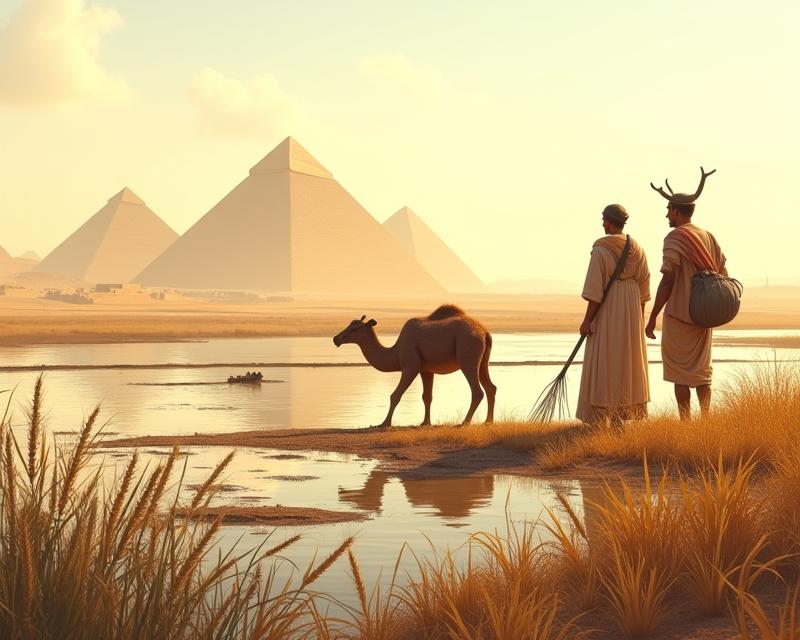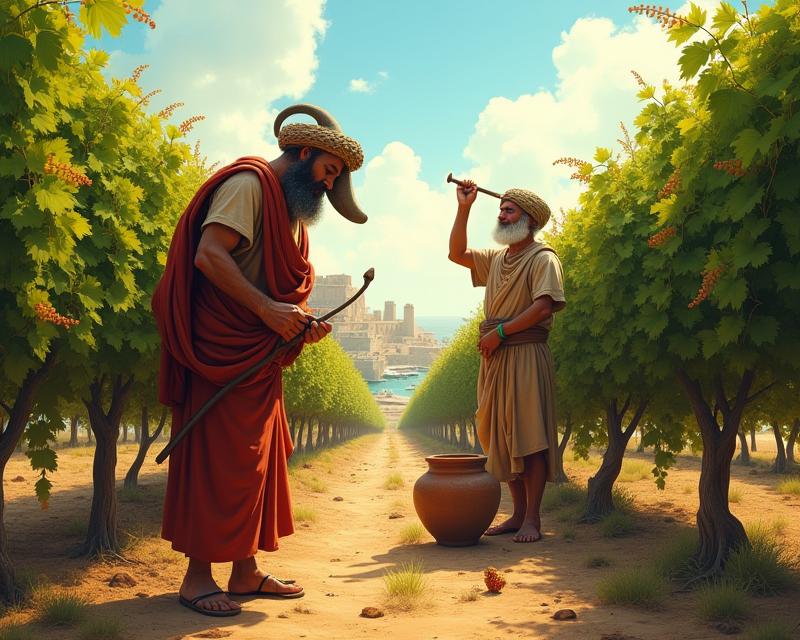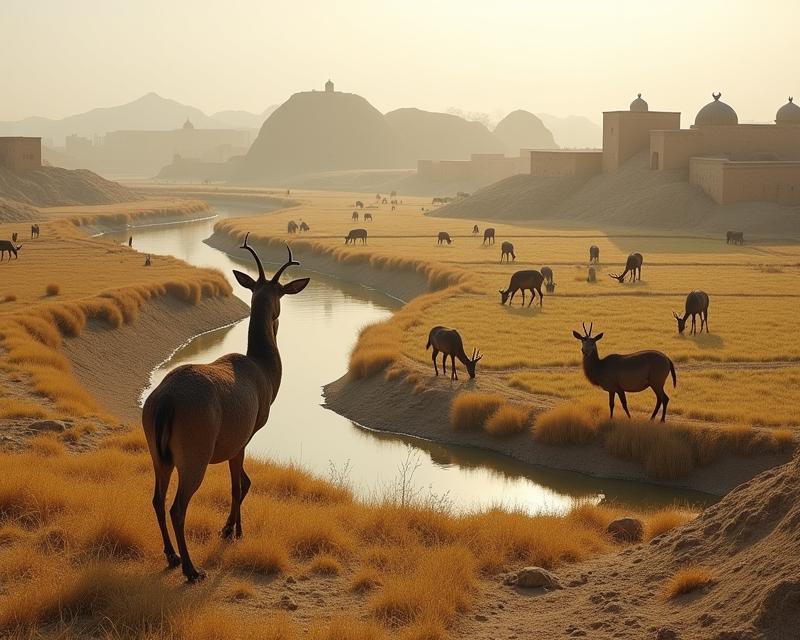Ancient Egypt: Farming on the Nile
Publish in Agriculture el 03/07/2025 17:22
Ancient Egypt: Farming on the Nile
Have you ever stopped to think about where our modern farming practices come from? It’s fascinating to look back and see how civilizations solved the challenges of food production. One of the earliest and most successful examples is ancient Egypt, and their relationship with the Nile River is a lesson in agricultural ingenuity that still resonates today. For thousands of years, the Nile wasn't just a river; it was the lifeblood of Egyptian society, dictating their calendar, their economy, and even their religion.

The key to Egyptian agricultural success was the predictable annual flooding of the Nile. Every year, the river would swell, depositing rich, dark silt onto the fields. This silt was incredibly fertile, acting as a natural fertilizer that made the land exceptionally productive. Think of it like a free, natural boost for your soil! Farmers developed sophisticated systems to manage this cycle. They carefully monitored the river's movements and planned their planting and harvesting schedules accordingly. This wasn't just luck; it was a deep understanding of the natural world, passed down through generations.
The Egyptians primarily grew wheat and barley, which were used to make bread and beer – staples of their diet. They also cultivated flax for linen, a crucial textile. Irrigation systems, like canals and dikes, were developed to control the water flow and extend the growing season. While the Nile's flood was essential, the Egyptians also understood the importance of water management. They built and maintained these systems to ensure crops weren't drowned and received the right amount of water at the right time. This required a lot of cooperation and organization within the community, a skill that's still vital for modern farming communities.
The Nile's influence extended beyond just food production. The surplus of food allowed for specialization of labor, leading to the development of a complex society with artisans, scribes, and administrators. The prosperity generated by agriculture fueled the construction of monumental structures like the pyramids, demonstrating the critical role farming played in the development of one of history's greatest civilizations. So, the next time you're tending your crops, remember the ancient Egyptians and their ingenious use of the Nile. Their story reminds us that understanding and working *with* nature is the key to successful and sustainable agriculture. It’s a timeless lesson for farmers today!





